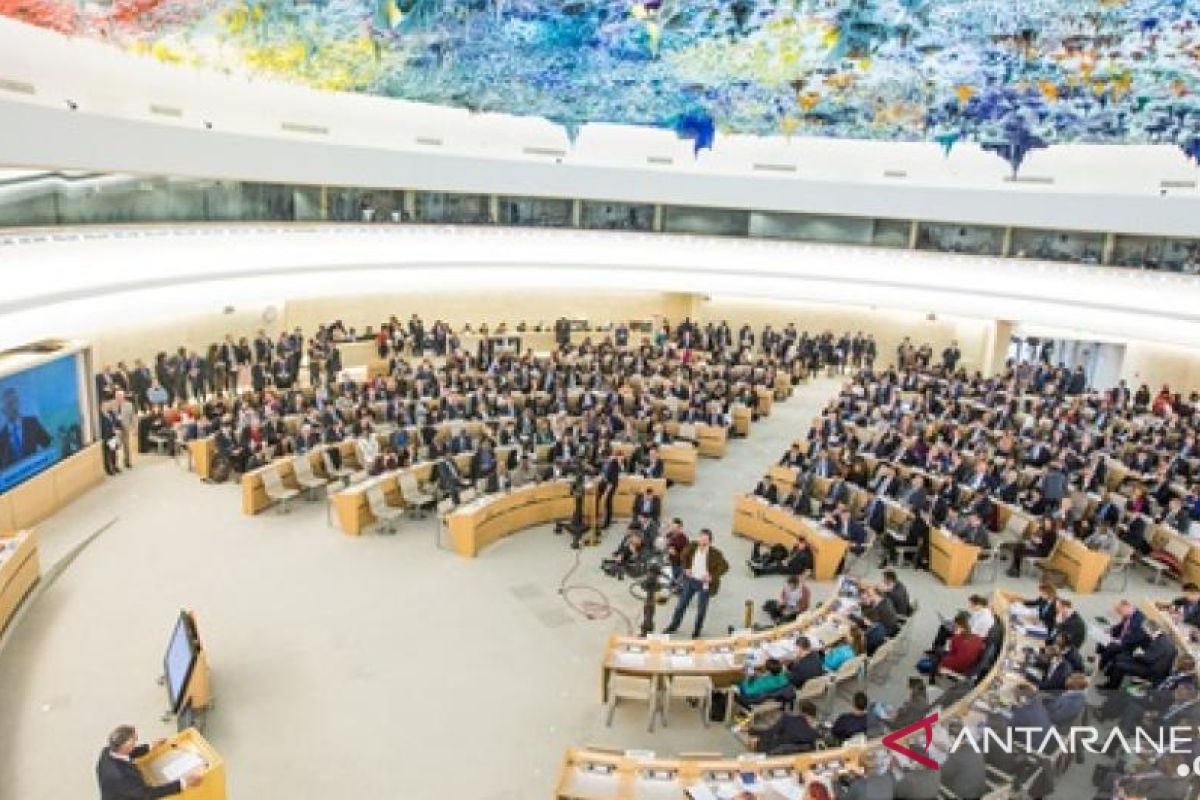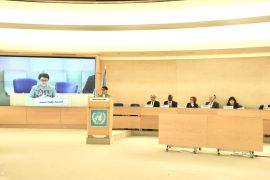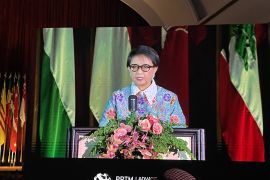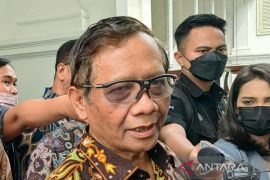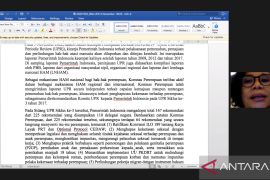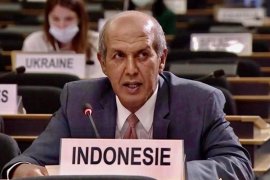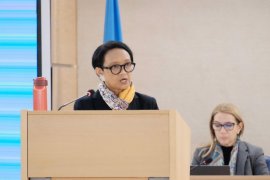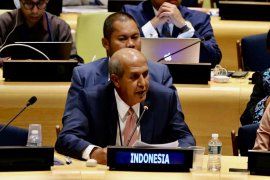Indonesia was elected to regain its seat for the sixth time in a secret ballot held by the UN General Assembly in New York, the US, on October 10, 2023.
Indonesia secured the most votes, at 186, from 192 UN member countries, to sit as a member for the 2024-2026 term.
This vote count was the highest that Indonesia had ever received in its history of candidacy for the UN Human Rights Council.
Indonesia had earlier served on the UN’s premiere human rights body in 2006-2007, 2007-2010, 2011-2014, 2015-2017, and 2020-2022.
“This showed trust in Indonesia to continue to advance human rights protection,” Foreign Affairs Minister Retno Marsudi stated.
Other countries that were also elected as members of the UNHRC for the 2024-2026 term were Albania, Bulgaria, Cuba, Brazil, the Dominican Republic, Peru, the Netherlands, and France, among others.
Protecting human rights
Indonesia's theme for its term on the UN Human Rights Council is "Inclusive Partnership for Humanity."
Indonesia believes that inclusive partnerships are key to promoting and protecting human rights.
Countries should work together to protect human rights, regardless of their political differences, and Indonesia is consistently opposed to using human rights issues for political gain, Marsudi affirmed.
Indonesia has three priorities for its term on the UN Human Rights Council. Some issues that will be discussed comprise the protection and promotion of rights of women and children, ensuring that all countries have access to development and issues related to civil and political rights.
First, Indonesia is keen to strengthen the capacity of countries and reduce inequalities between nations in their capacity to promote and protect human rights, mainly through technical cooperation and capacity building.
Regarding commitments to the protection and promotion of human rights at the national level, Indonesia will promote the strengthening of the implementation of the National Action Plan for Human Rights (RANHAM).
This includes the promotion of important issues, such as gender equality, the protection of rights of children and women, and the right to health and development.
RANHAM, which is regulated in Presidential Regulation Number 53 of 2022, is a document that outlines strategic targets for implementing the respect, protection, fulfillment, enforcement, and promotion of human rights for women, children, persons with disabilities, and indigenous people.
Second, promotion and protection of human rights in Southeast Asia through strengthening the effective mandate of the ASEAN Intergovernmental Commission on Human Rights (AICHR) and ASEAN Commission on the Promotion and Protection of the Rights of Women and Children (ACWC), as well as institutionalizing the ASEAN Human Rights Dialogue.
Indonesia is also seeking to intensify cooperation with UN agencies and the regional office of the Office of the United Nations High Commissioner for Human Rights (OHCHR) to increase technical cooperation and capacity building in the field of human rights in the region, especially the rights of children, women, and persons with disabilities.
Third, promote the implementation of the values of the Universal Declaration of Human Rights (UDHR) and the strengthening of multilateralism with the principles of solidarity, inclusivity, and equality.
The Universal Declaration of Human Rights (UDHR) is a document adopted by the UN General Assembly in December 1948. UDHR is a general statement of rights and fundamental freedoms for all people, regardless of race, color, sex, language, religion, national or social origin, or any other status.
The declaration discusses fundamental human rights, including the right to life, freedom from slavery, freedom from torture, freedom of religion, and the right to work, the right to education, and the right to enjoy a standard of living adequate for health and well-being.
“Indonesia will remain dedicated to strongly push for robust implementations of UDHR to address the challenges on the ground, beyond just commemoration,” according to the foreign ministry.
Indonesia is also committed to strengthening cooperation with countries in the region and international and regional organizations to address issues in the region related to human trafficking and smuggling, online child exploitation, and online labor exploitation.
Indonesian Deputy Permanent Representative to the UN in Geneva, Achsanul Habib, stated that Indonesia is also keen to ensure that the UN Human Rights Council does not become an arena for geopolitical competition and only discusses issues for political gains but overlook other important issues.
Hence, Indonesia will strive to bring up other issues, such as the protection and promotion of the rights of women and children, ensuring that all countries have access to development, and issues related to civil and political rights.
Indonesia has repeatedly spoken out about the importance of development rights in international forums, such as the 78th Session of the UN General Assembly in New York, the US, last September.
Foreign Minister Marsudi stated that every country has the same right to develop and grow, but the global architecture today only benefits the selected few.
Marsudi stated that trade discrimination against developing countries continues to take place. Global supply chain is being monopolized by certain countries, while several developing countries also struggle with foreign debts and development financing.
Dialogue
Senior policy advisor on diplomacy, political economy, and social security and founder of independent think-tank Synergy Policies, Dinna Prapto Raharjo, stated that Indonesia's membership in the UN Human Rights Council will encounter challenges, as the world is currently becoming increasingly realistic and unilateral.
In other words, countries are becoming more focused on their national interests and less willing to cooperate with others on human rights issues.
When countries are more focused on their own interests, they are less likely to keep their promises to protect and promote human rights. She noted that this is leading to countries ignoring almost all of their commitments to human rights.
Indonesia's strategy of using dialogue to address human rights issues at the Human Rights Council is unlikely to be successful because it depends on other countries being willing to cooperate, she pointed out.
As the council is often limited in its effectiveness due to political divisions among member states, Raharjo said that Indonesia should not only rely on the Human Rights Council but also work directly through a bilateral approach with other countries to advance human rights protection.
Despite these challenges, Indonesia's membership in the UN Human Rights Council is an important opportunity for the country to promote and protect human rights, both domestically and internationally. By working with other countries in the council, Indonesia can help to raise awareness of human rights issues and develop norms and standards.
Related news: Indonesia’s re-election to UNHRC reflects global appreciation: Laoly
Related news: Mahfud commends UN statement on recognition to human rights violations
Related news: Women's commission asks govt to adopt UNHRC recommendations
Editor: Sri Haryati
Copyright © ANTARA 2023
